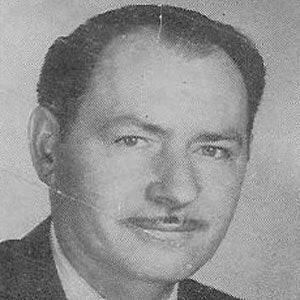Frank Gruber's "Fool-proof" 11 Point Formula for Mystery Short Stories
|
By Frank Gruber
essay published in 1966 in Brass Knuckles, a collection of short stories featuring Oliver Quade, the Human Encyclopedia. "I used to analyze stories. What elements were required? After a period of time I evolved a formula for mystery short stories. It consisted of eleven elements. With those eleven elements in a mystery plot, I could not miss. I used to work out each element at a time, concentrating on one until I had it licked, the going on to the next. Most writers of mysteries inject the eleven elements into their stories anyway, but by putting them down one at a time I became conscious of them. Once I had worked out these eleven elements, the job of coming up with plots for mystery stories was greatly simplified.
I did not create this 11-point formula at one time. I evolved it over a period of about two years beginning back in 1934. I had perfected it by about the middle of 1936. To this day I claim that this plot formula is foolproof. You can write a perfectly salable mystery story with perhaps only seven or eight of these elements, but get them all into a story and you cannot miss. Here are the eleven elements: 1. THE HERO. A hero must be colorful. He must have an occupation that is colorful or he must be a colorful person. In general, I have followed the theory that a regular policeman or detective is not colorful. Just think a moment about the greatest detective in all detective fiction - Sherlock Holmes - and you will quickly grasp what I mean by colorful. 2. THEME. This, to me, is the most important element of any mystery story plot. By theme I mean subject matter, what the story is about in addition to, over and above, the ACTUAL MURDER plot. To illustrate: "Death and the Main" is about fighting cocks. I give a reasonably inside account of how gamecocks are raised, how they are fought, etc. This is knowledge not possessed by the average reader and believe me, I did not know it until I read up on the subject, for the purpose of this story. My book, The Lock & the Key, was about locksmiths. A liberal education in making locks and keys was thrown into the murder plot. I knew absolutely nothing about locks and keys until I did research on the subject. I know no more than is in the book. If you have ever read Dorothy Sayers' excellent English mysteries, you will find that THEME figures superbly. In The Nine Tailors, the reader learns all about church bells, the art of bell-ringing, etc. In Murder Must Advertise, Miss Sayers discusses advertising in all its phases. HOWEVER . . . knowledge of a subject should be used sparingly. The mystery reader may not be as interested in the subject as you are. 3. VILLAIN. Let's face it, the hero of detective fiction is a Superman. The villain must therefore be a super-Superman or have plenty of assistants. The odds must ALWAYS be against the hero. 4. BACKGROUND. The story must be played against a colorful or unusual background. The streets of a big city are not necessarily colorful. If they're not, make them so. 5. MURDER METHOD. Here again, the "unusual" should be considered. Shooting, stabbing, etc. are acceptable, but the circumstances surrounding them should be "unusual." 6. MOTIVE. Actually, there are only two reasons for murder - hate and greed, but there are many subdivisions of these and the motive should be as unusual as possible. 7. CLUE. Somewhere in the story, there must be a clue for the alert reader. Sure, try to fool the reader, but the clue must be there if the reader should want to check back on you, after the story is over. 8. TRICK. In the grand finale, when all seems lost, when the hero cannot possibly win out, he must snatch victory from apparent defeat. By a trick... and here the word "unusual" applies. 9. ACTION. The story must have pace and movement. It must not consist of talk, talk, talk, about the missing button, etc. 10. CLIMAX. A grand, smashing climax is necessary. Unusual. 11. EMOTION. The hero should be personally involved in some manner. He should be doing this, over and beyond the call of duty. Or, beyond the money paid him for doing it. |
From wikipedia:
Frank Gruber was an American writer. He was an author of stories for pulp fiction magazines. He also wrote dozens of novels, mostly Westerns and detective stories. Gruber wrote many scripts for Hollywood movies and television shows, and was the creator of three TV series. He sometimes wrote under the pen names Stephen Acre, Charles K. Boston and John K. Vedder. |

